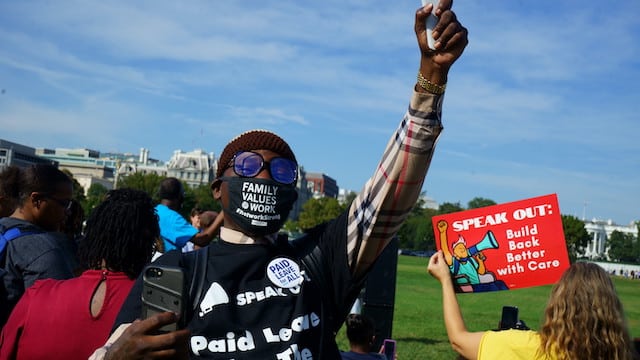New York diners relax. Paid sick leave is now the law.

It will now be much easier for many New Yorkers to take a sick day from work.
Early Thursday, lawmakers overrode a veto by Mayor Michael Bloomberg to pass a law that would require businesses to offer paid sick leave for their workers. The benefit will go into effect in 2014 for employees of businesses with 20 or more workers and at a later date for smaller employers; it could be postponed if the city’s economy takes a big turn for the worst. Some businesses, such as struggling manufacturing firms, are exempt.
Still, once one gets over the irony of Bloomberg’s veto (the same mayor who tried to pass a ban on sugary drinks to help fight obesity sent back a law that would ensure people don’t come to work when they’re sick) it’s interesting to note that New York now becomes the most populous place in the United States to offer such a benefit, reports the Associated Press. New York joins Portland, Ore.; San Francisco; Seattle; Washington, D.C.; and the state of Connecticut in requiring the benefit for some workers.
Debra Ness, president of the National Partnership for Women & Families, which advocates for paid sick leave, believes that New York’s size and the override of Bloomberg’s veto helps add to the momentum in other cities and states considering similar legislation. “It’s a huge pivotal step for the country,” she says. “I believe that if we can show that it works in New York City, it just reinforces that you can make it work anywhere.”
But while efforts have been successful in New York, they have failed elsewhere. Milwaukee, Denver and Philadelphia have all been unable to pass similar requirements. Small businesses, in particular, are opposed to the requirements. Back in April, for instance, the National Federation of Independent Businesses said in a statement for a previously reported story that such a requirement “forces small businesses operating with narrow profit margins — or even losses — to sacrifice productivity and sales, which will ultimately result in job losses and business closures.”
Maybe so. But it’s not like such policies have yet caused economic calamity. A recentaudit, for instance, found that Washington’s mandatory paid sick leave law, enacted in 2008, has not prompted businesses to leave Washington. And studies have also shown that companies that provide paid sick days to employees tend to have lower turnover, lower costs of acquiring new employees, fewer employees out of work, and better productivity.
After all, there’s a cost for all of those things, too. In a 2009 study called “Contagion Nation,” the Center for Economic and Policy Research writes that “when workers don’t take time off to address illnesses at their onset, they often end up taking longer absences as conditions worsen. Moreover, when workers come to work with contagious illnesses, they spread them to co-workers, increasing the pool of absent or low-productivity workers.” And that doesn’t even take into account the benefit of paid sick leave for customers of everything from nursing home and child care facilities to the food-service industry, where some 86 percent of employees don’t have paid sick leave. (Don’t you want the guy making your sandwich to be able to afford to stay home when he gets the flu?)
Whoever’s right in the debate over how much paid sick days cost businesses, one thing’s for sure: U.S. policy offers far less than many other countries when it comes to paid sick days or longer-term paid sick leave. CEPR’s 2009 study of 22 countries found that the United States is the only country that does not provide paid sick leave for a worker undergoing a 50-day cancer treatment. It’s also one of just three that has no national policy requiring employers to offer paid sick days (Japan and Canada are the other two, though most Canadian provinces offer it) for workers who need to miss five days of work to recover from the flu.
Now let’s all go wash our hands.

Paid sick days and leave in 22 countries (Center for Economic and Policy Research)